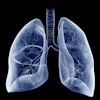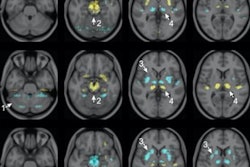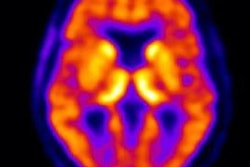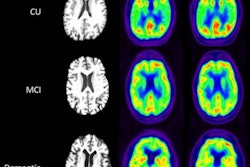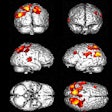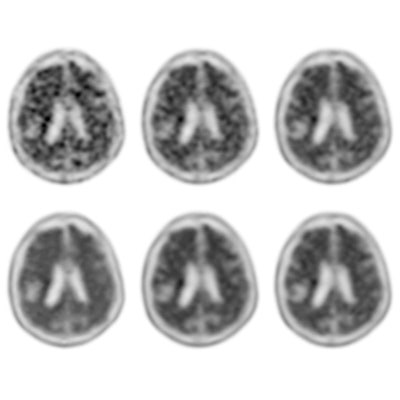
An artificial intelligence (AI) algorithm was able to reduce the time required to acquire PET images of Alzheimer's disease from 20 minutes to five minutes without sacrificing image quality in a study published October 4 in Computers in Biology and Medicine.
Chinese researchers developed a new PET imaging denoising model called MCDNet-2 and tested its performance identifying beta-amyloid plaque at reduced imaging times compared with a standard benchmark of 20 minutes. They found the AI algorithm generated comparable image quality on scans acquired in five minutes.
"These results suggest strongly that deep learning-based methods such as ours can be an attractive solution to the clinical needs to improve PET imaging workflow," wrote first authors Zhao Peng, PhD, and Ming Ni, PhD, and colleagues at the University of Science and Technology of China in Hefei.
PET image noise is caused by the random nature of radioactive decay. Existing studies of other AI algorithms have shown good performance for PET image denoising, yet most studies have focused on denoising images by reducing the injection volume of radiopharmaceuticals.
"The role of PET scanning time in the clinical workflow has been neglected in these studies," the authors wrote. Also, with cases of Alzheimer's disease increasing in a rapidly aging global population, more efficient beta-amyloid PET diagnostic tools are needed, the researchers added.
In this study, the researchers collected brain PET images of 25 patients (10 men and 15 women) who underwent fluorine-18 florbetapir PET scans for Alzheimer's disease at their institution's hospital between November 2020 and January 2021. Thirteen patients were positive for beta-amyloid plaque and 12 were negative.
PET images acquired from both the standard scanning time of 20 minutes and reduced scanning times of one, two, five, and 10 minutes were reconstructed by the MCDNet-2 denoising model for each patient and then compared. The quality of the PET images was quantitatively evaluated using objective metrics, while two radiologists performed subjective evaluations using a qualitative 5-point grading system.
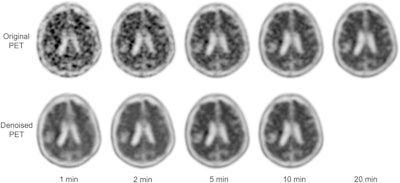 Visual comparison of reduced scan time PET images before and after denoising by MCDNet-2, with those of the normal scanning time of 20 minutes.
Visual comparison of reduced scan time PET images before and after denoising by MCDNet-2, with those of the normal scanning time of 20 minutes.The denoised results of the one-minute and two-minute PET images were overly smooth and blurry, the researchers reported. The denoised results of the five-minute and 10-minute PET images, however, showed a high similarity with the ground truth 20-minute PET images.
In addition, the shortened PET scan images appear promising for clinical use, according to the feedback of two expert radiologist readers, the authors wrote. In the qualitative evaluation of the model's beta-amyloid positive or negative results, MCDNet-2 achieved a classification accuracy of 100%, the authors found.
"The proposed denoising method has been found to reduce the PET scan time from the normal level of 20 minutes to five minutes but still maintaining acceptable image quality in correctly diagnosing [beta-amyloid] levels," the researchers wrote.
Ultimately, the authors emphasized that the AI model they developed for denoising images is meant for use by radiologists, rather than for quantitative metrics. Human subjective evaluation is more intuitive than electronic observers in image quality assessment, which is important given that standard 20-minute PET acquisitions in Alzheimer's disease patients are still imperfect and contain some noise, they wrote.
Future studies of the model are warranted, the researchers concluded.
"In the next study, the proposed method will be tested on larger datasets to further validate its efficacy. In addition, we will be interested in the extension of this method to other types of radiopharmaceuticals," they wrote.



